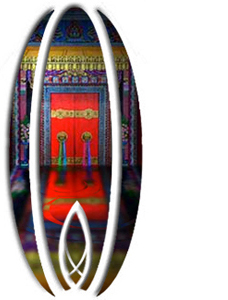Zoroastrianism
- At October 10, 2006
- By Betty
- In Mysticism, Religion
 0
0

Zoroastrianism is the religion and philosophy based on the teachings ascribed to the prophet Zoroaster (Zarathustra, Zartosht). Mazdaism is the religion that acknowledges the divine authority of Ahura Mazda, proclaimed by Zoroaster to be the one uncreated Creator of all (God).
As demonstrated by Zoroastrian creed and articles of faith, the two terms are effectively synonymous. In a declaration of the creed the adherent states: “I profess myself a devotee of Mazda, a follower of Zarathustra.” (Yasna 12.2, 12.8)
Zoroastrianism was once the dominant religion of much of Western- and Central Asia but as of 2007 practiced only by fewer than 200,000 worldwide, with its largest center in India.
The Zoroastrian religion was formed approximately 1600-1200 BCE (depending on the source in use) in the north-eastern region of Iran (Persia) by the prophet Zoroaster whose teachings were recorded in what is known as the Avesta. It is said the Zoroastrian religion is one of the world’s first monotheistic religions.
Zoroaster was the founder of the Zoroastrian religion. It is believed that Zoroaster was born on the 26th of March, 6 days after the Persian celebration of Norouz 1. Some of his teachings disapproved of animal sacrifices, the many gods, class system and the use of the Haoma plant (a hallucinogenic) which was tied in to the former bronze age religion of Persians. Zoroaster believed in one ultimate God who was to be worshiped and also brought on the idea of heaven and hell. He saw fire as a sign of energy, light and purity which is now one of the many symbols representing the religion. At the time, many of his teachings were opposed by local leaders who saw their rituals and power threatened particularly because Zoroaster dismissed over-ritualism. After leaving his home, King Hutosa who heard Zoroaster’s teachings and speeches, decided to make Zoroaster’s ideas and gospel the official religion of his kingdom.
Zoroaster is said to have died at around the age of 77 on the 26th of December
Basic beliefs
There exists a transcendental and universal God, Ahura Mazda, who is the one uncreated Creator and to whom all worship is directed. With the name being a playful combination of a masculine and a feminine word, it should be stressed that this divinity is not gender specific.
Creation is attacked by violence and destruction. The resulting conflict involves the entire universe, including humanity, which has an active role to play in the conflict. Ahura Mazda will ultimately prevail, at which point time will end.
Active participation in life through good thoughts, good words and good deeds are necessary to ensure happiness and to keep the chaos at bay.
There is a concept of free will, to decide whether to perform good thoughts, words and deeds.
Not from Zarathushtra’s original teachings, but nonetheless accepted by some as doctrine, are:
Evil is represented by Angra Mainyu (literally ‘destructive spirit’), and good is represented by Spenta Mainyu, the ‘good spirit’. In articulating the Ahuna Vairya formula, Ahura Mazda made his ultimate triumph evident to Angra Mainyu, who then fell back confounded.
After death, the soul is allowed three days to meditate on his/her past life. If the good thoughts, words and deeds outweigh the bad, then the soul is taken into the light of Ahura Mazda. Otherwise, the soul falls into darkness. The ‘darkness’ is more similar to the Catholic doctrine of purgatory than the Christian doctrine of hell.
The universe will go through three eras:
creation; the present world where creation is under attack.
a final state when Spenta Mainyu will dominate and Ahura Mazda prevail, all the universe will revert to its pure state and the souls trapped in darkness will be released.
Precepts include:
equality of all people
respect, kindness to all living things
the values of hard work, charity
loyalty, faithfulness to family, country

